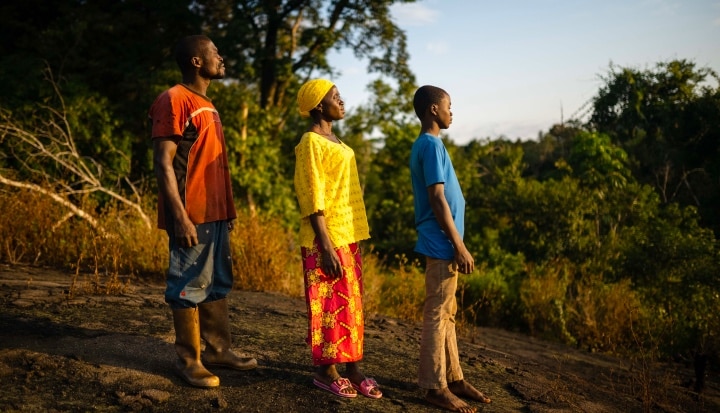The rapid spread of COVID-19 and the resulting global restrictions, challenged everyone involved in the production of food all over the world. Fairtrade is no exception, working as we do with over 1.6 million farmers and workers supplying the UK’s supermarkets.
Produce from Africa, Asia, and South America makes up 10 to 15 per cent of the food and drink sold in the UK, which means that those farmers and workers, and millions like them, are “key workers”. Their wellbeing is directly linked to yours and mine; a wellbeing, of course, which became profoundly threatened by the pandemic.
The ILO estimate[1] that 94 percent of the world’s workers are affected by some form of workplace closure, and a drop in working hours equivalent to 305 million jobs.
In the first tense weeks, it became clear how challenging it was going to be to keep food and other essentials moving as the world locked down. On the ground, farmers faced multiple issues:
- An urgent need for protective equipment, additional sanitation, distancing measures, and health education.
- Producers of staples such as bananas saw stable demand. But restrictions at work (including shielding leave for older workers) and transport difficulties hugely increased production costs.
- Consumers stopped buying some products, including flowers, almost overnight. The drop in air freight capacity also hit flowers badly. There were widespread layoffs in East Africa, with permanent closures possible for some farms.
- Risks of human rights abuses at work increased, as restrictions and lockdowns prevented scrutiny. Insecure jobs created pressure to accept poor working conditions.
We identified a number of ways for businesses to take action:
- Keeping workers safe is paramount, so share health advice, establish workplace distancing and pay for protective measures. Accurate health advice combats misinformation.
- Provide emergency funding for furlough, shielding leave and other costs. Preventing businesses going under in the “first crunch” also makes it easier to restart production.
- Provide reliable financing and prompt payment , honour existing contracts and commit to future orders to ease planning and cash flow. Providing information about UK market trends also helps producers plan effectively.
- Buyers need to be clear to suppliers that, despite challenges, high standards in human rights, working conditions and public health measures must be upheld.
- We need government policy to back protective measures in the short term, and encourage resilient supply chains for the long term. Business must raise its voice alongside civil society if we are to see ambitious plans for green and fair recovery.
Fairtrade also took action:
Fairtrade Premium rules were temporarily relaxed [2] to pay for salaries, furloughs and shielding leave, job protection and public health measures. Many producers have taken this up to great effect.
We established a relief fund[3] with initial investments of €3.1 million (Euro).
- We reminded producers of the need to maintain high standards[4] including in human rights, wages and health.
- We shared briefings with producers on UK market trends. We’ve also been active advocates with politicians, businesses and beyond, and encouraged business and donor responses.
As we move towards recovery, what can we learn?
The crisis demonstrates a dangerous fragility in many food supply chains. With many producers in developing countries working on very low margins, the shock of COVID-19 seriously challenged food production and the well-being of communities.
We also saw impressive steps from Fairtrade producers to support farmers and workers, drawing on reserves, household and community assets built up through Fairtrade premium to protect health, jobs, and businesses.
We also saw retailers and brands with a track record in human rights, environmental sustainability and poverty reduction responding quickly and meaningfully.
For example, Waitrose announced[5] funding to help suppliers with emergency needs, as well as speeding up payments to vulnerable suppliers. Co-operative Food[6] announced support including emergency funding and human rights due diligence measures. Tate & Lyle sugars[7] replicated UK communication and safety measures in their overseas operations within days, including with cane farmers, using relationships developed through Fairtrade were key.
Is there evidence here that commitments to fairer prices and practice have reduced risk in the face of COVID? Further independent research would be invaluable. If investment in fairer trading practices has indeed led to supply chains standing up better to the pandemic, the implications are huge.
Fairtrade has long argued that poverty, human rights and environmental damage in food supply chains will not be solved unless farmers are paid fairly. This experience shows that failure to pay fair prices also stacks up risks from future shocks to our food system. It also tells us that investing in the resilience of farmers will be key for the food security of the world’s future consumers.
[1] https://www.ilo.org/wcmsp5/groups/public/@dgreports/@dcomm/documents/briefingnote/wcms_745963.pdf
[2] https://files.fairtrade.net/standards/Announcement_Premium_COVID19_EN_FINAL.pdf
[3] https://www.fairtrade.org.uk/Media-Centre/News/May-2020/Fairtrade-Producer-Relief-Fund-Announced
[4] https://files.fairtrade.net/standards/Announcement_Premium_COVID19_EN_FINAL.pdf
[5] https://waitrose.pressarea.com/pressrelease/details/78/NEWS_13/12247
[6] https://coop4colleagues.files.wordpress.com/2020/07/co-op-global-wellbeing-charter.pdf
[7] Private conversation with Tate & Lyle Sugars, July 2020










